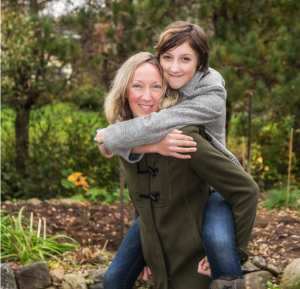
One of the risk factors for mental health on a GPs list is ‘being a teenage girl’. Just being a teenage girl, nothing else. How can we have allowed this to be? Just by having her 13th birthday puts a girl at risk for the next seven years. We can change this. We must change it.
First the statistics, then what you can do to change them:
- One in four girls is clinically depressed by the time they turn 14, that’s 166,000 girls in UK. (UCL Sept 2017)
- Girls are now three times more likely to suffer from depression and anxiety than boys and on any given day up to 5% of girls aged 12 -17 will be prescribed anti-depressants. (Nuffield Foundation. Social Trends in Adolescent Mental Health 2013)
- I in 4 women aged 16 – 24 have self-harmed and 26% of women aged 16 – 24 drink at hazardous levels. (NHS Digital)
- Suicides among teen girls have risen by a third in the past year. (NHS Mental Health Services 2015)
- Girls as young as five are worrying about their weight. By the age of ten 80% of girls will be on a diet to change their body shape. (APPG Report 2012 and Common Sense Media 2015)
- 33% of girls aged 13-17 have experienced some form of sexual abuse. This figure is likely to be higher in 2018. (NSPCC 2009)
Which of these help your daughter?
| start talking about feelings with your daughter when she’s young | |
|---|---|
| help her to rage and sob and let it out rather than hide her feelings | |
| find things that help to reassure her when she feels anxious | |
| have good bedtime routines to help sleep | |
| spend fun time with your daughter, regular mother-daughter dates | |
| talk about what you do when you feel anxious or angry or sad | |
| give her a lockable diary | |
| drink plenty of water, brains don’t work well when dehydrated | |
| avoid big sugar highs and their inevitable lows | |
| don’t skip meals or snack late at night | |
| sit down to family meals whenever possible | |
| spend time outdoors | |
| dance, swim, walk, and take the stairs | |
| play games | |
| sing along to the radio | |
| help her to follow her dreams | |
| have time when nothing is planned | |
| make sure she has someone other than you to talk to | |
| join a girls’ group | |
| talk | |
| listen |



5 Comments
All of them! It’s sometimes hard to fit them in especially now my daughter is at secondary school and has a long journey but it’s special when we do those things. Our favourites are gathering wood and pine cones, to light our stove, cooking meals and spontaneously dancing around the kitchen wildly!
Agreed – all of these can help. I would add two: read together – it’s liberating to lose our selves in the world of books; and be honest – particularly when you don’t know the answer!
Apparently having an “auntie” or another female role model ideally closer to her in age but mature enough will help to mediate and could help her by having certainty of a safe place/person to go when things at home aren’t great at times… I find this particularly difficult as we don’t have any family in the UK so appointing someone to fill this had proved very difficult and unfortunately there is no local girls group yet around here and neither could afford face to face counselling sessions.
Thank you Lorena for reminding me about the importance of girls having a mentor (how could I forget?!) You’ve given me my next topic to write about: finding a mentor. As families tend to travel more now, it becomes more challenging to find older women who can take that special role in our daughter’s lives but usually there’s a way.
Kim, you know what I’m going to say. Create strict boundaries around and support smarter (safer) use of smartphones, iPads and social media (better still, share the information about why these radiating and addictive devices and platforms are so harmful to their developing brain and body and avoid them if/as much as possible). The prevalence of teen depression & suicide spiked when the iPhone was released. Turn off wifi and DECT cordless phones at night and remove/say NO to ‘smart’ meters to give autonomic nervous system a rest (consider hardwiring computers and switching to corded phone especially if your child suffers from high anxiety/ADHD/autism/screen addiction/chronic illness in the family). Enforce sleep hygiene – no screens/phones in bedrooms – and evening/sleep rituals. Negotiate digital detox days for whole family and (with teachers) alternatives to homework on iPads: Read and write in real books. Practice what you preach! Spending time with nature (and grounding barefoot on earth), family meals, singing, dancing all wonderful for raising vibration. Essential oils can be helpful too – to uplift/calm mood and as an emotional anchor. Seriously consider cutting out gluten and sugar and increasing healthy fats (omega 3s) – gut health hugely influences mood and cognitive function. Introduce EFT (Emotional Freedom Technique) as a powerful self-help technique she can use to manage her emotions in the moment. Agree a S.O.S./I.C.E. signal she can use should anything untoward happen and she needs your attention when you might be preoccupied so it doesn’t go unnoticed. (I know of a lady who was abused as a child on a ship – she would have told her parents had they noticed her come into the cabin dishevelled but they were preoccupied so she slipped into the bathroom to clean up and the moment to share passed her by).